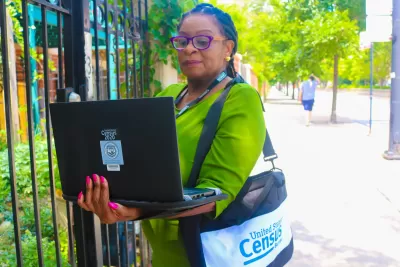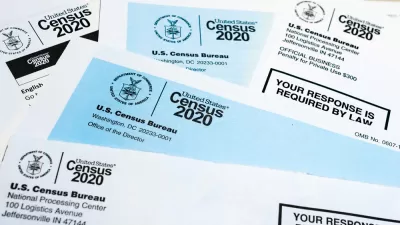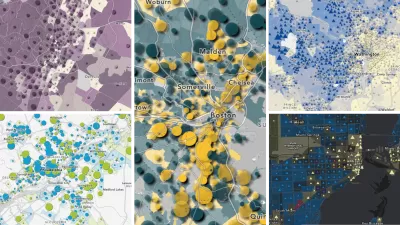Due to the challenges faced by data collectors during the pandemic, the Census Bureau will not be releasing 2020 ACS data in September as usual.

Each September, the U.S. Census Bureau releases the results of its annual American Community Survey (ACS). But, Mark Mather writes, due to the challenges posed by the COVID-19 pandemic in 2020, the Bureau has decided to forgo the standard data release and instead "release experimental estimates for a limited set of tables and geographic areas" in November.
"There were early warning signs that this was coming. In a presentation at our recent 2021 ACS Data Users Conference, Mark Asiala, an assistant division chief in charge of ACS statistical design, reported that between April and September 2020, the Census Bureau was forced to suspend many of its data collection operations, including in-person visits to homes that didn’t return survey questionnaires. He said the Census Bureau conducted one-third fewer interviews for the 2020 ACS, compared with the 2019 ACS."
The 2020 responses also experienced a significant level of "non-response bias," with respondents having "higher average incomes, education levels, and homeownership rates" on average than those who did not respond.
The lack of data deals a major blow to demographers who hoped to answer some essential questions about what happened to the U.S. population during the pandemic. "For states, metropolitan areas, congressional districts, and many large counties and cities, the 2020 ACS 1-year data could have provided our first comprehensive portrait of how American life changed during the pandemic."
"The good news is that 2021 ACS data should be released next year as planned. Because ACS data collection is ongoing, we will eventually be able to compare population and housing characteristics before, during, and after the pandemic."
FULL STORY: Why the 2020 American Community Survey Is Different and Why It Matters

Maui's Vacation Rental Debate Turns Ugly
Verbal attacks, misinformation campaigns and fistfights plague a high-stakes debate to convert thousands of vacation rentals into long-term housing.

Planetizen Federal Action Tracker
A weekly monitor of how Trump’s orders and actions are impacting planners and planning in America.

In Urban Planning, AI Prompting Could be the New Design Thinking
Creativity has long been key to great urban design. What if we see AI as our new creative partner?

King County Supportive Housing Program Offers Hope for Unhoused Residents
The county is taking a ‘Housing First’ approach that prioritizes getting people into housing, then offering wraparound supportive services.

Researchers Use AI to Get Clearer Picture of US Housing
Analysts are using artificial intelligence to supercharge their research by allowing them to comb through data faster. Though these AI tools can be error prone, they save time and housing researchers are optimistic about the future.

Making Shared Micromobility More Inclusive
Cities and shared mobility system operators can do more to include people with disabilities in planning and operations, per a new report.
Urban Design for Planners 1: Software Tools
This six-course series explores essential urban design concepts using open source software and equips planners with the tools they need to participate fully in the urban design process.
Planning for Universal Design
Learn the tools for implementing Universal Design in planning regulations.
planning NEXT
Appalachian Highlands Housing Partners
Gallatin County Department of Planning & Community Development
Mpact (founded as Rail~Volution)
City of Camden Redevelopment Agency
City of Astoria
City of Portland
City of Laramie





























